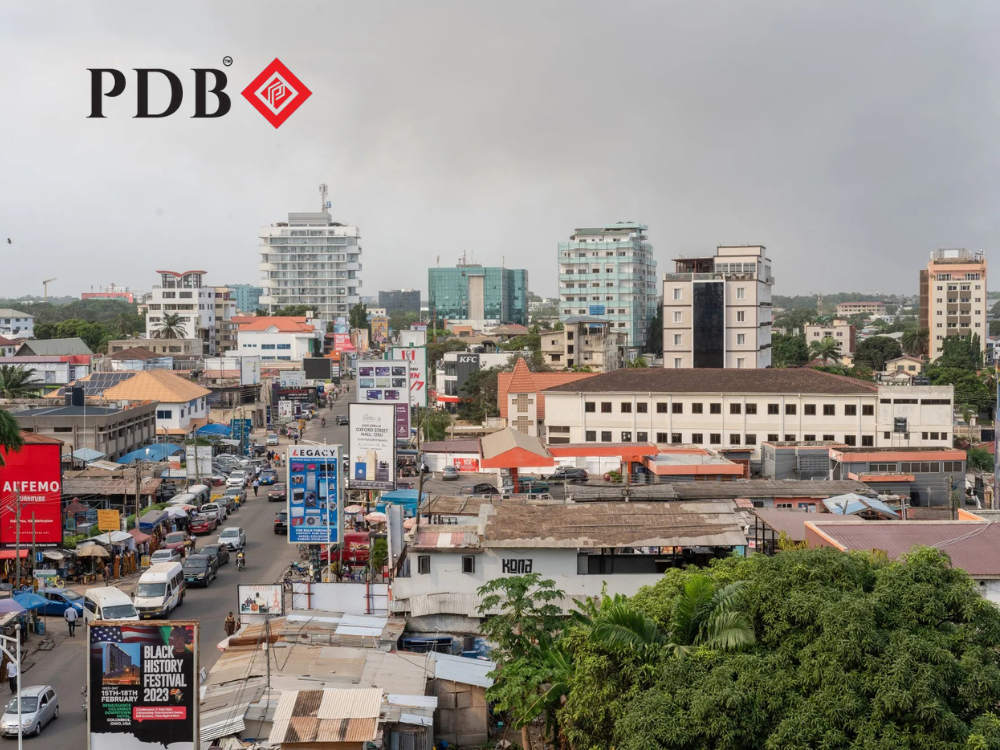Insight
Home / Blog

A Land Economy Perspective on Ghana’s 2026 National Budget: How Infrastructure, Land Reform & Value Addition Unlock National Wealth
- 0
- 0
- 0
A Land Economy Perspective on Ghana’s 2026 National Budget
How Ghana Plans to Unlock Land-Based Wealth Through Infrastructure, Land Reform & Value Addition.
When most people hear “national budget,” they think taxes, long speeches, and endless numbers. Ghana’s 2026 National Budget is different.
For the first time in years, the government is treating land, natural resources, and infrastructure as engines of economic growth, not just administrative issues. From a land economy perspective, this budget could be transformative for Ghana’s future.
1. Why Ghana’s New Stability Matters
Economic stability in 2025, steady currency, lower interest rates, and renewed investor confidence create the strongest foundation for the land and property sector in a decade.
Cheaper Borrowing = More Construction
Interest rates dropped from over 30% to around 10%, making:
● Real estate development more viable
● Mortgage loans affordable for everyday Ghanaians
● Pension funds and insurance companies more willing to invest in property
● Previously abandoned projects financially attractive again
Stable Cedi = Predictable Costs
The Cedi appreciated nearly 35% and stabilized, meaning:
● Accurate budgeting
● Fewer cost overruns
● Realistic project timelines
● Stronger confidence in long-term development
Investor Confidence Rises IMF reviews and credit rating upgrades are restoring international trust. Diaspora investors, private equity, and multinational funds now see Ghana as a credible, stable investment destination.
2. The Three-Part Strategy to Unlock Land Value
The 2026 Budget uses a clear approach: Infrastructure → Land Reform → Value Addition.
a) Infrastructure as a Wealth Creator
The US$10 billion “Big Push” reshapes Ghana’s economic geography:
● Accra–Kumasi Expressway: Cuts travel distance by 50km, reduces travel time by half, connects economic zones, raises land values, and creates new commercial and industrial hubs.
● 1,000km Agricultural Roads: GH¢828 million allocated to reduce transport costs, improve market access, raise rural land values, and attract agribusiness investments.
b) Digital Land Administration Reform
For decades, land registration in Ghana has been slow and opaque. The 2026 budget introduces:
● A unified, digital National Land Registry
● Faster land searches and registration
● Reduced litigation and fraud
● Titles strong enough to serve as collateral Big win: The Lands Commission retains 100% of its internally generated funds, unlocking billions of Cedis in previously untitled land.
c) Natural Resource Value Addition
Ghana is moving from raw exports to local value creation:
● Oil Palm Development (GH¢6.9 billion): 100,000 hectares under the nucleus estate + outgrower model will strengthen refining, create jobs, and boost rural land value.
● Gold Board Reforms: A Gold Village for jewelry manufacturing formalizes small-scale mining, retains value locally, and positions Ghana as a global jewelry export hub.
3. Execution Challenges
The budget is strong on paper, but delivery is key:
● Land Acquisition & Compensation: Mega-projects need fair, fast, and transparent processes.
● National Spatial Planning: Without enforced planning, expressway corridors risk ribbon development, congestion, and disorderly settlements.
● Local Institutional Capacity: Digital reforms require skilled teams at the regional and municipal levels.
Conclusion: A Blueprint with Huge Potential
Ghana’s 2026 National Budget is bold, ambitious, and strategically sound. It treats land, infrastructure, and natural resources as interconnected levers for development. Success depends on:
● Swift, fair land acquisition
● Strong spatial planning
● Well-resourced local institutions
● Transparent and efficient delivery
If executed well, Ghana could be on the brink of a historic transformation driven by land-based wealth.
Stay informed. Stay ahead. For more insights on Ghana’s economy, land reforms, and infrastructure projects, subscribe to our newsletter.
By, Agnes Ama Dophah
Social Media Management


Mario Smith
Jun 25, 2021
" I couldn't have asked for a better real estate agent than PDB. Their market expertise and negotiation skills were top-notch. I'm thrilled with my new home!"
Mary Tyron
Mar 23, 2022
" I want to express my gratitude to PDB for their exceptional service. They helped me find the perfect rental property, and their responsiveness made the process quick and easy."
Leo Williams
May 23, 2020
" If you're looking for a real estate agent who truly cares about your needs, PDB is the one to choose. Their guidance and support were instrumental in our successful home purchase."